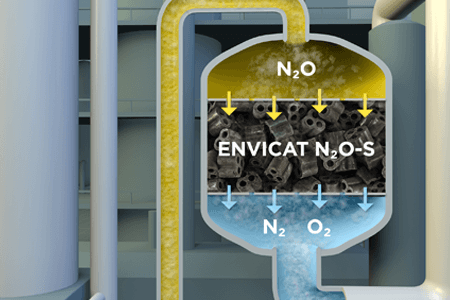Sustainability Challenge:
Volatile Organic Compound (VOC) emissions from the use of solvents in paints and coatings contributes to air quality issues, particularly in large urban areas.
Chemistry Solution:
Hexion developed a new waterborne epoxy resin to help reduce VOCs throughout the value chain.
Sustainability Benefit:
By manufacturing lower VOC products, Hexion reduces hazardous waste output, regulatory burden, nuisance odor, flammability and air emissions throughout the value chain, providing an overall reduction in global warming potential.
Volatile Organic Compound (VOC) emissions from the use of solvents in paints and coatings contributes to air quality issues, particularly in large urban areas.
Several years ago, Hexion Inc., began to develop waterborne epoxy resin systems. Although Hexion recognized the potential environmental, safety and overall sustainability benefits such systems could have that some traditional solvent-based systems might not, the market was initially hesitant about performance, and it was sometimes challenging to generate customer interest.

Hexion decided to change its approach by first identifying sustainability mega-trends that could drive lower VOC content, and then using that to identify a market segment that would likely be first to see the pressure from that trend.
Hexion identified the Chinese shipping container manufacturing segment as one that would likely be under pressure to reduce VOC emissions, due to significant smog and air quality issues in China and the fact that 98 percent of the world’s shipping containers are manufactured and coated in China. Hexion joined an industry consortium in China to educate the marketplace and government officials about the performance and sustainability attributes of waterborne coatings technology. The Chinese government responded by changing regulations to require lower-VOC coatings.
The application of waterborne epoxy resins in the Chinese shipping container market has helped China to realize a tangible improvement in air quality, while also helping to enhance worker safety.
The use and manufacture of waterborne resins provides sustainability benefits throughout the value chain. By manufacturing lower-VOC products, Hexion reduces hazardous waste output and air emissions in its operations, providing an overall reduction in global warming potential, as well as lowering the risk of fire by eliminating flammable solvents and enabling easier and safer clean-up.


